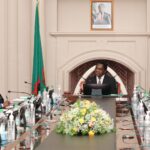Former MMD (Movement for Multi-Party Democracy) National Secretary, Raphael Nakacinda, has clarified his role in the sale of 128 motor vehicles, which the party leadership is asking him to account for. Nakacinda explained that these vehicles, originally seized under suspicion of being proceeds of crime, were sold to raise approximately US$1 million in legal fees for the defense of former President Rupiah Banda.
The vehicles were registered under the MMD but had been purchased by Banda for his 2011 general election campaign. As a result, they became part of the assets involved in a legal battle, with various law firms demanding substantial fees for representing Banda. According to Nakacinda, the legal fees were exorbitant and beyond the financial capacity of the MMD.
Nakacinda stated that the decision to sell the vehicles was made collectively by the MMD leadership, including himself, at the time. The matter was brought before the National Executive Committee (NEC) of the party, where it was agreed that the party could not afford to pay the massive legal fees without liquidating some assets.
“The decision to sell the vehicles was not made lightly, but it was necessary to secure the legal representation that Banda required,” Nakacinda said in an interview. “The NEC reviewed the situation, and it was decided that selling the vehicles was the only viable option to raise the funds needed.”
While the sale of party assets, including motor vehicles, may raise eyebrows, Nakacinda emphasized that it was a strategic move taken under the guidance of the MMD’s leadership to address an urgent financial need. The funds generated from the sale helped to cover part of the legal costs that had been mounting as the legal defense team demanded substantial payments.
Nakacinda’s explanation comes amidst continued scrutiny over the management of MMD’s assets during his tenure as national secretary. The former party official faces calls to account for the disposition of the vehicles, but he maintains that the decision was in the best interests of the party at the time, particularly in ensuring that Banda received the legal defense he required.






